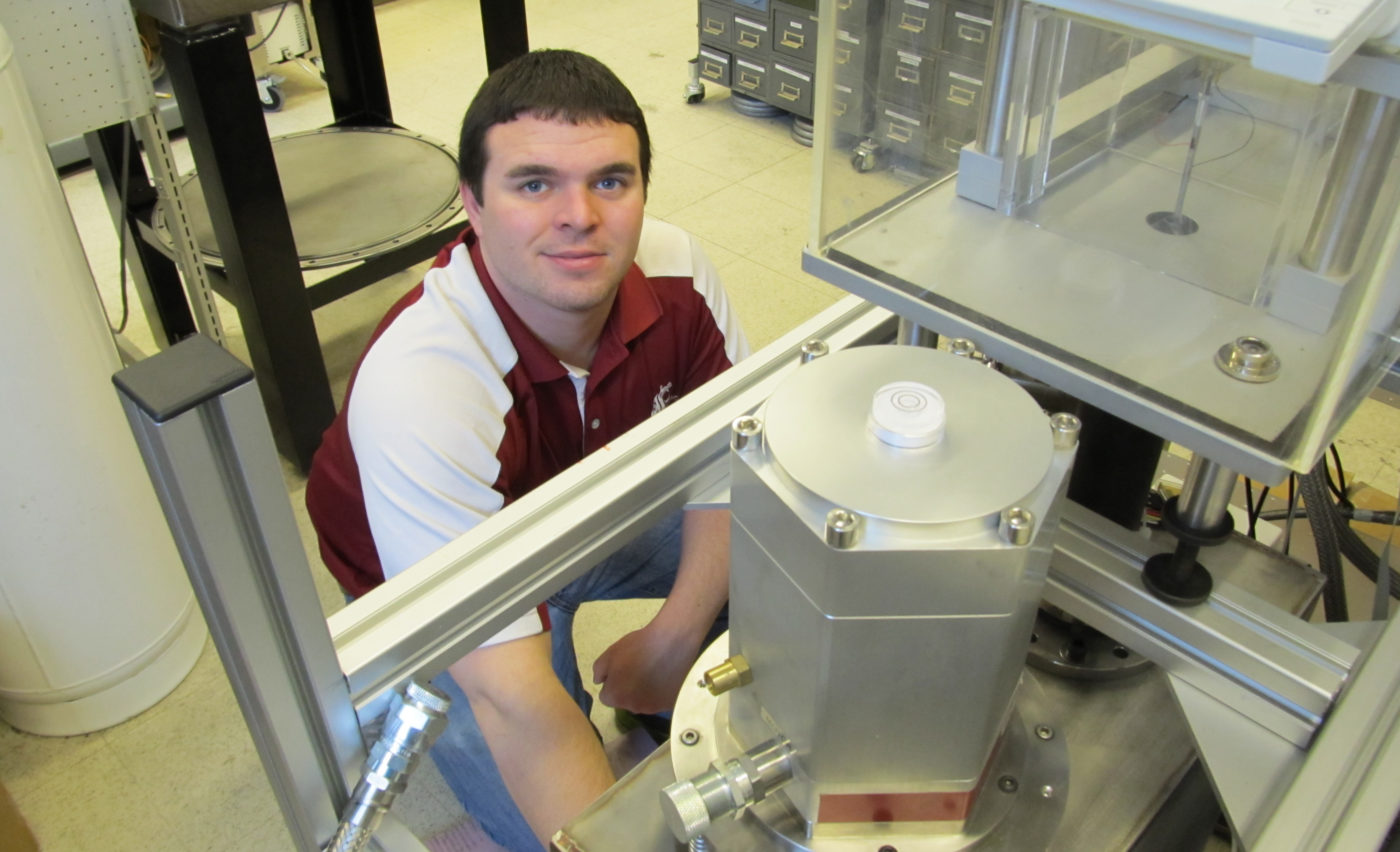
Ian Richardson, a graduate student in the materials science and engineering program, has received a prestigious NASA fellowship.
The Space Technology Research Fellowship provides support for Richardson’s work in improving understanding and making fundamental measurements of hydrogen-helium mixtures that occur in rocket fuel tanks.
To send a rocket into space requires a fuel with high specific energy and energy density. Rocket fuels have changed little in the past 40 years. Liquid hydrogen is still the preferred rocket fuel of NASA and other aerospace companies. As a rocket burns liquid hydrogen, the pressure in the fuel storage tank decreases. Cold helium gas is pumped into the fuel tank to maintain tank pressure and stability. The interaction between the cold helium gas and the liquid hydrogen is not well understood. Richardson’s research aims to characterize this interaction and improve our understanding of rocket fuels.
Richardson is working with Jake Leachman, assistant professor in the School of Mechanical and Materials Engineering, to develop instrumentation to test super cold fuel mixtures. To measure the energy densities, Leachman and Richardson are retrofitting an instrument that precisely measures density and sorption, or the ability of a material to hold or take up another substance. Leachman first saw the instrument as an undergraduate at the University of Idaho in the early 2000s. The instrument, called a Rubotherm IsoSORP 2000, had been sitting unused for several years.
To retrofit it, the researchers are basically strapping a refrigerator to the instrument, so they can measure mixtures at temperatures as low as 4.2 Kelvin, or -425 degrees Fahrenheit. Using the same basic principle of measuring that Archimedes discovered in his bathtub, the researchers will precisely measure density by seeing how much liquid their materials displace. There have been very few accurate density measurements of potential rocket fuels.
In addition to supporting Richardson’s research, the NASA Fellowship will include a summer internship with the agency in 2015.
“Ian is an outstanding example of a Coug who, through hard work with graduate research, has been recognized at a national level,” said Leachman.
Originally from Port Orchard, Richardson holds a bachelor’s degree from WSU in mechanical engineering. With a longtime interest in space and space exploration technologies, he said he was fortunate to end up working in a hydrogen laboratory, which is primarily of interest to the aerospace industry. He hopes to have a future career in aerospace and even to travel to space one day.
“Everybody’s interested in exploring space,” he says.